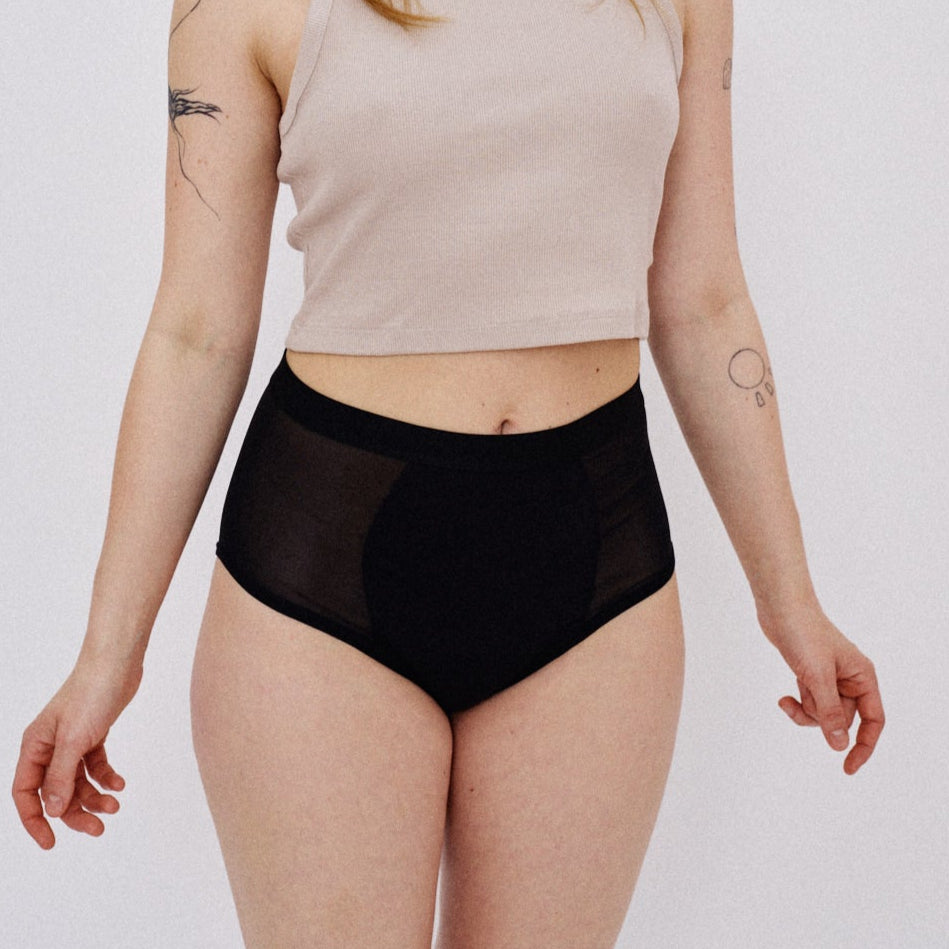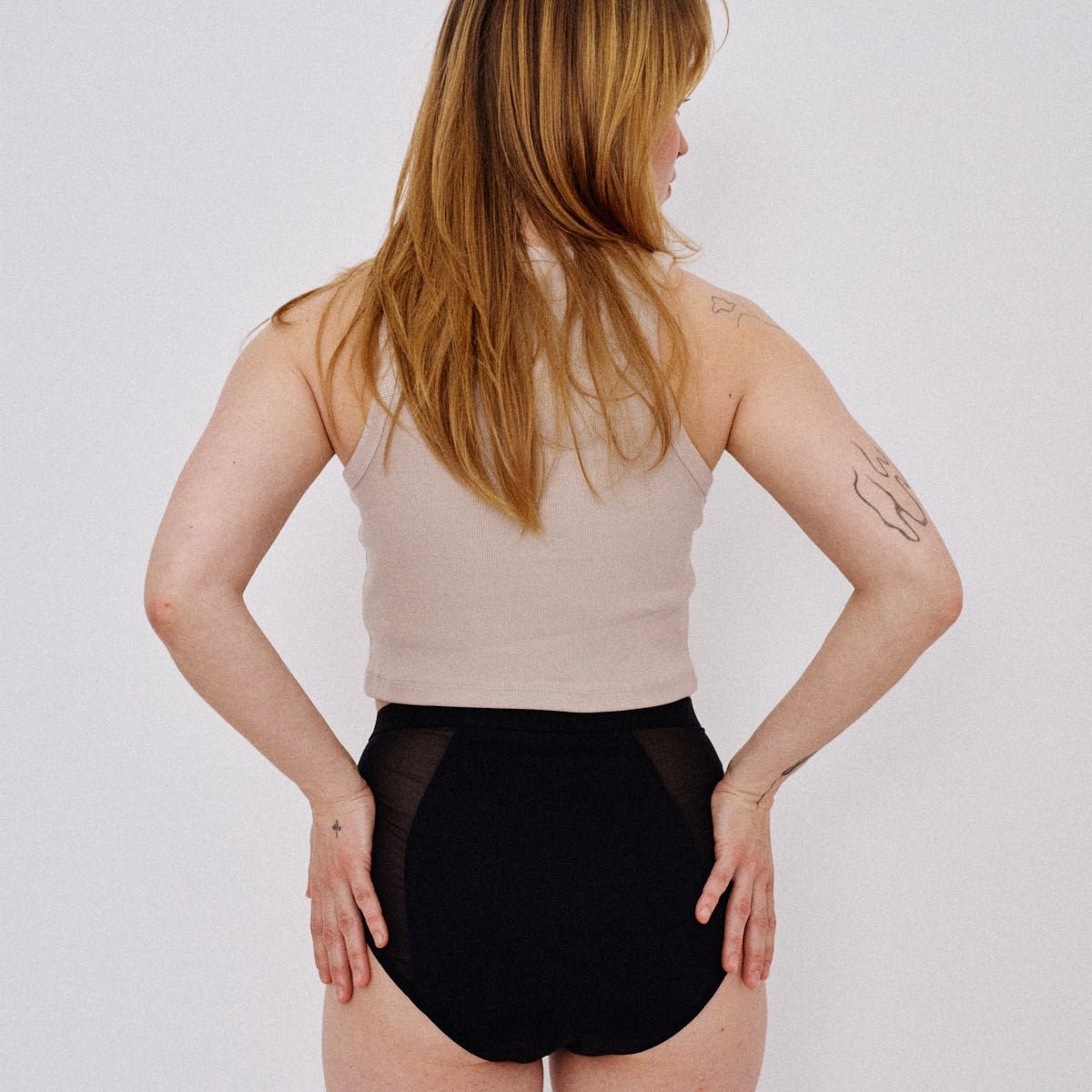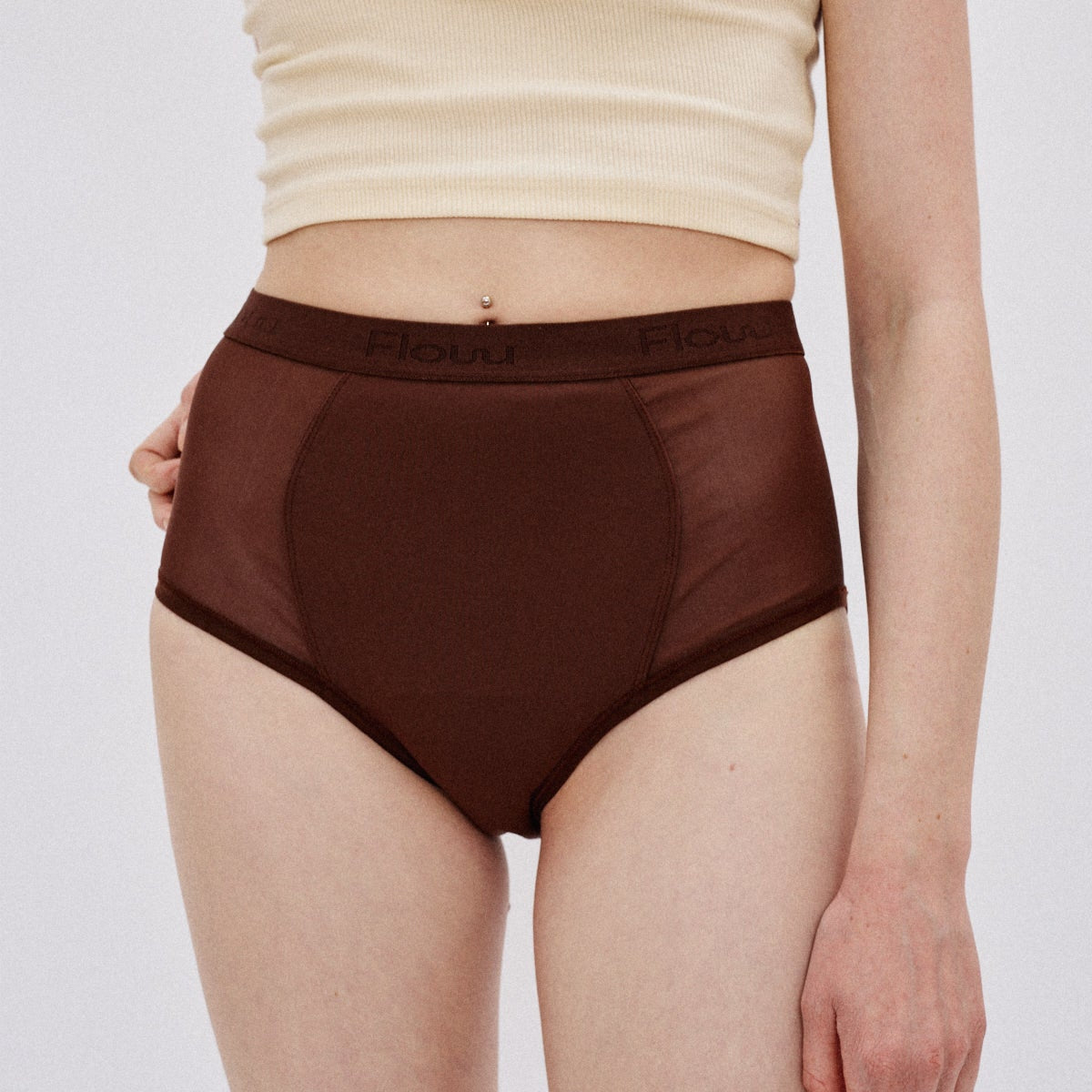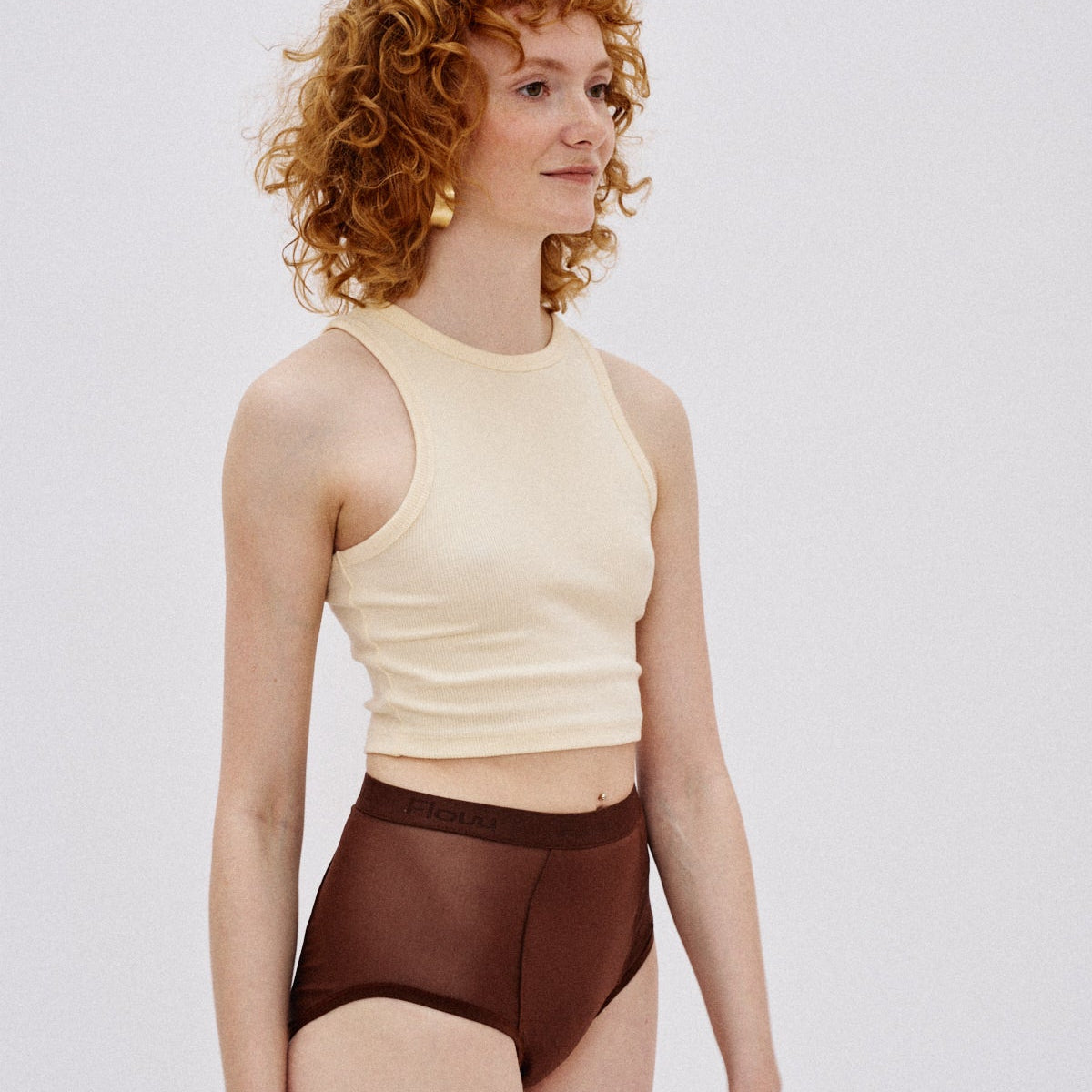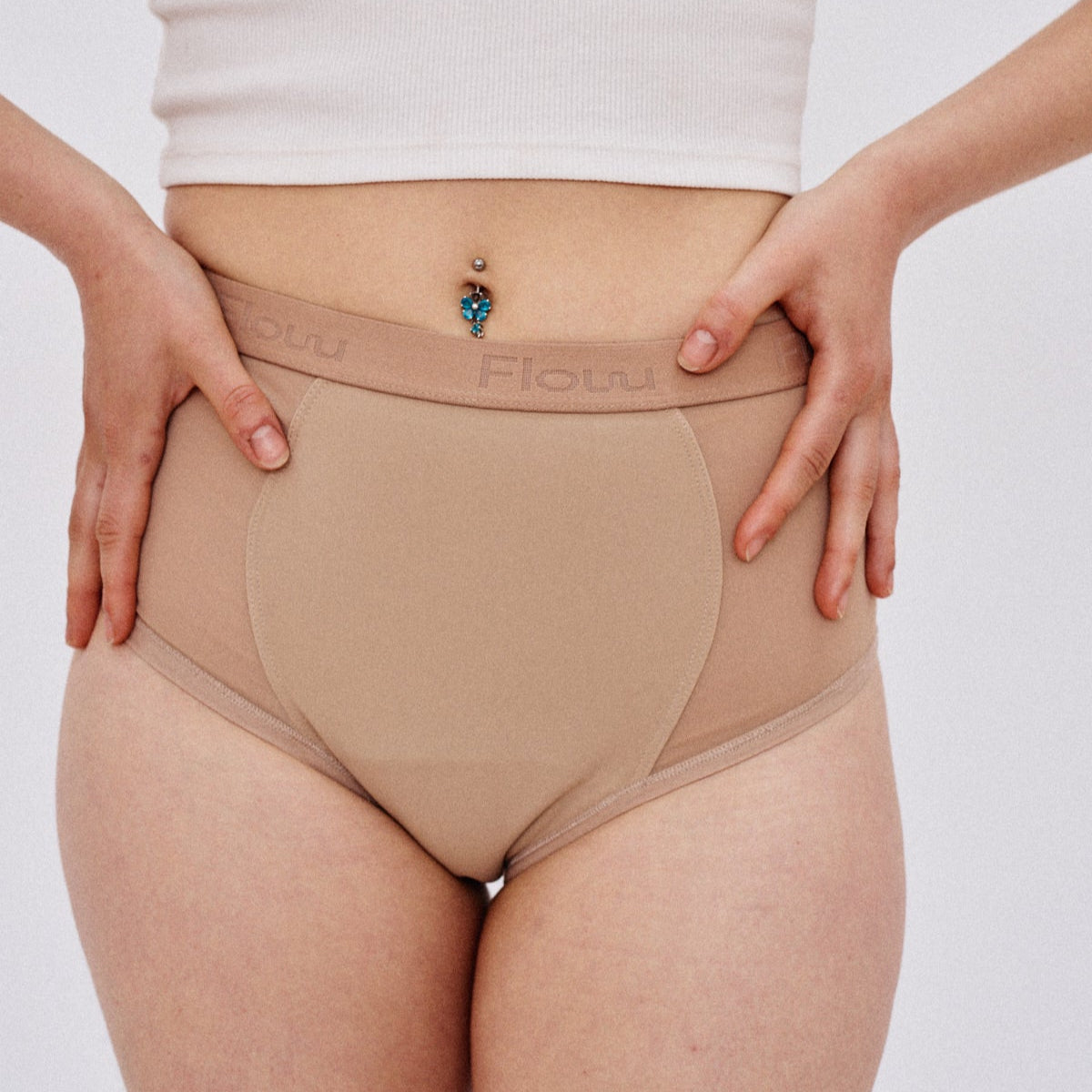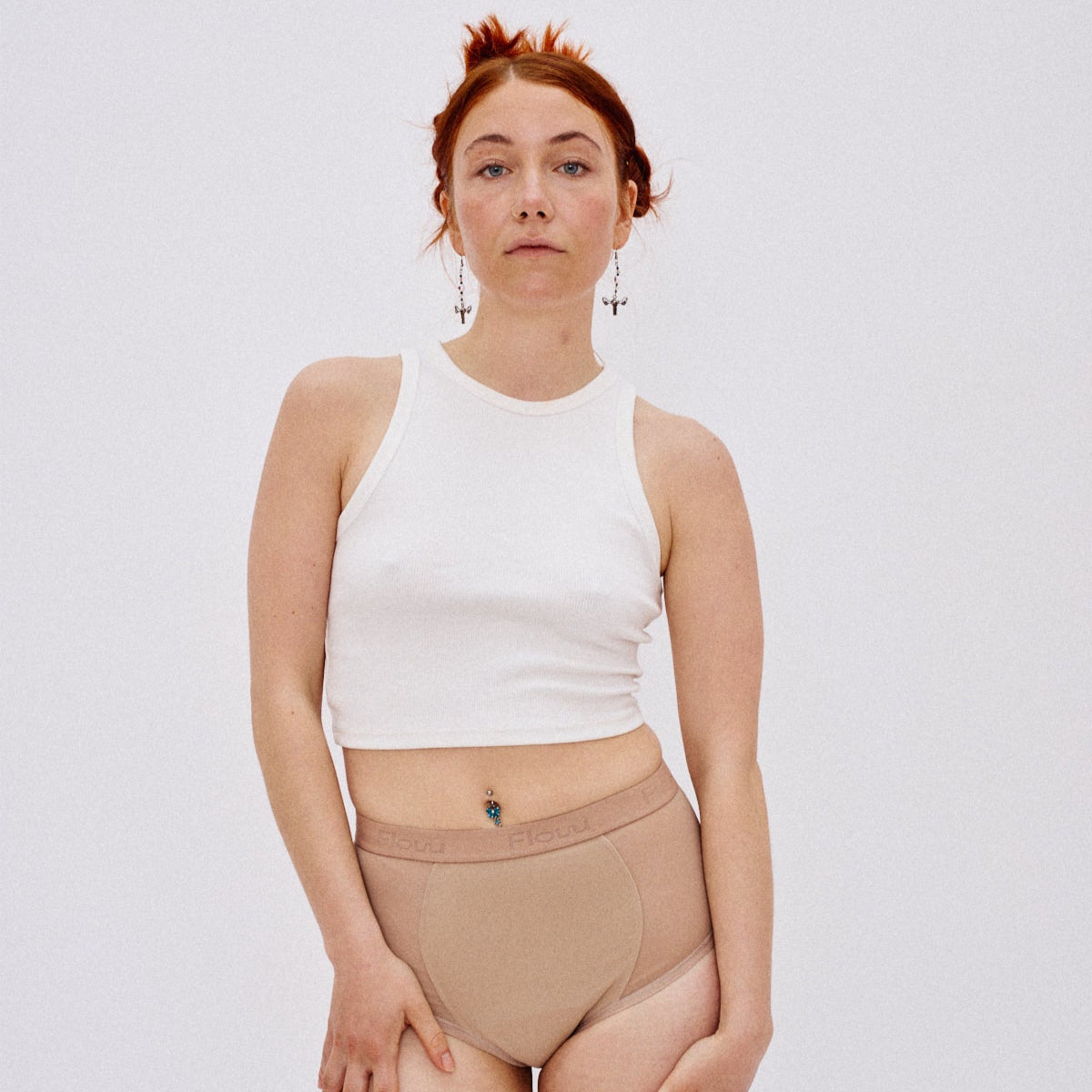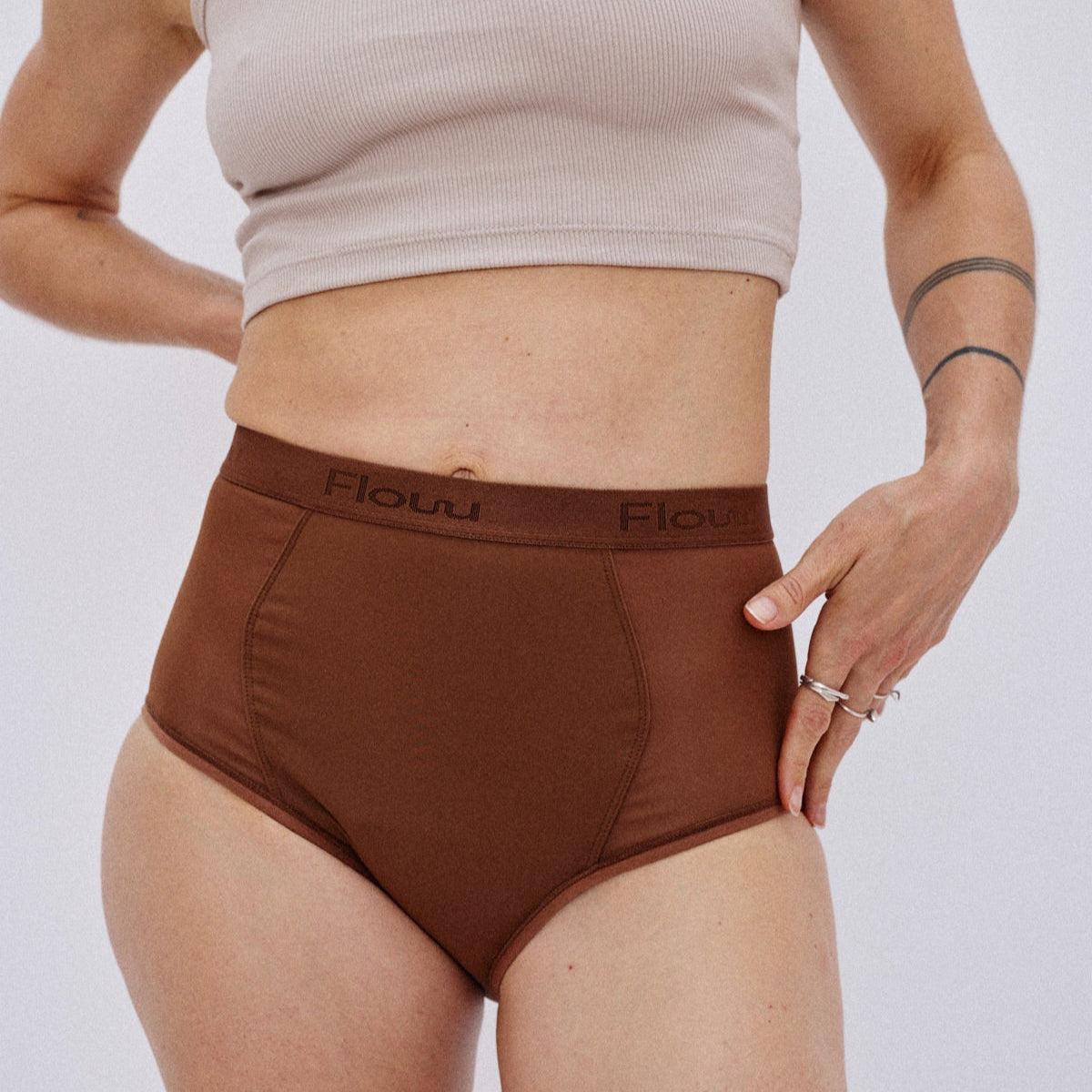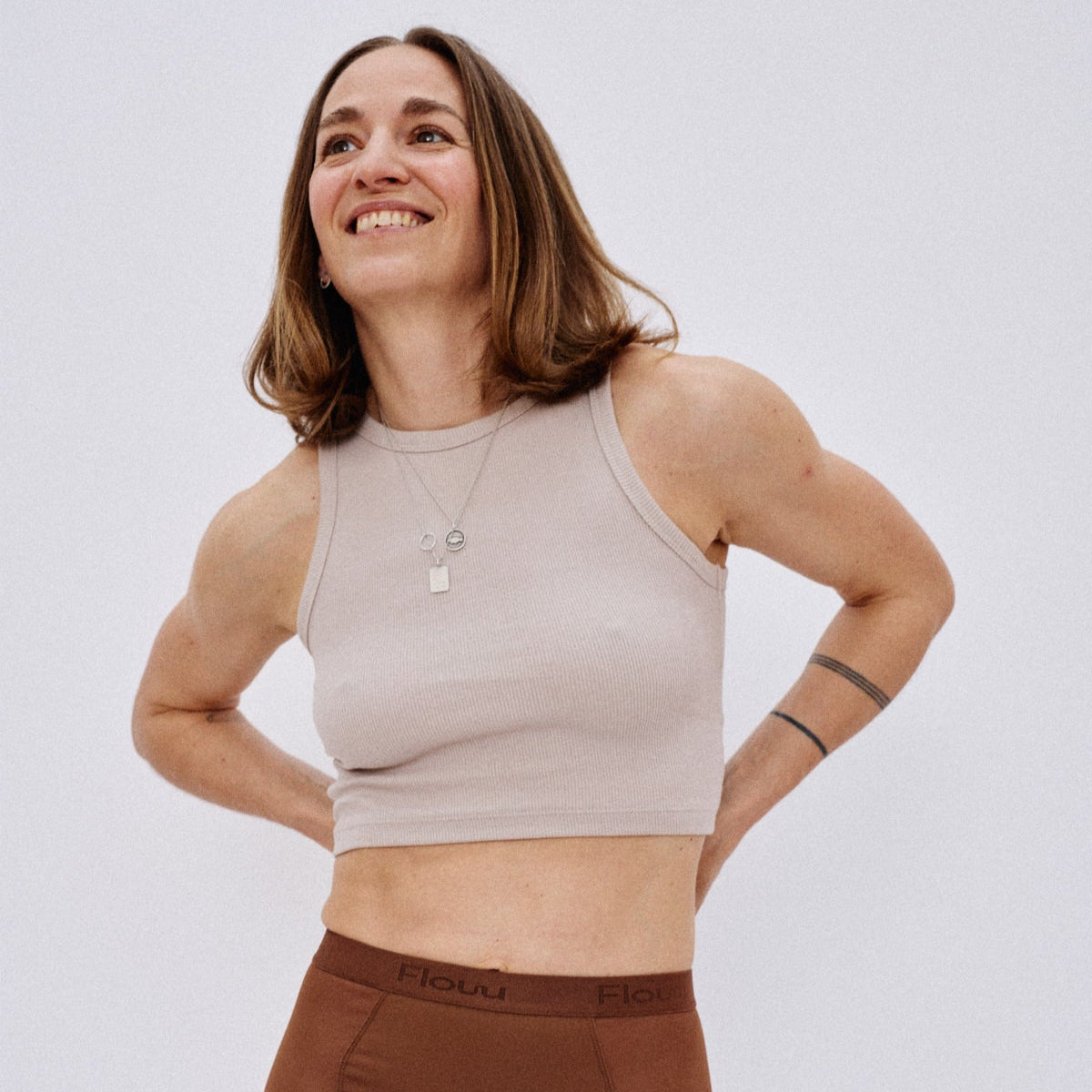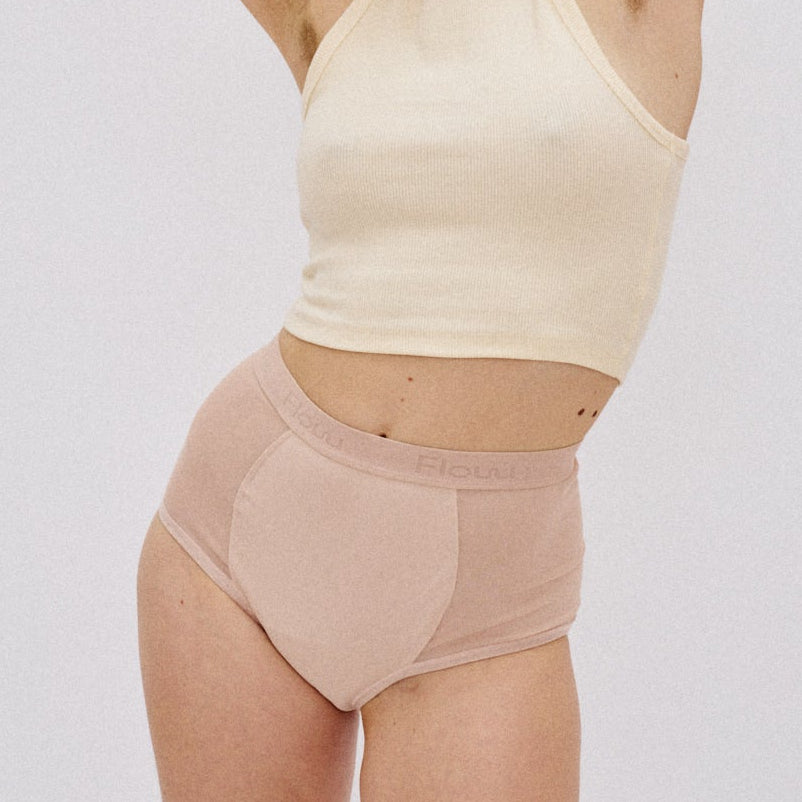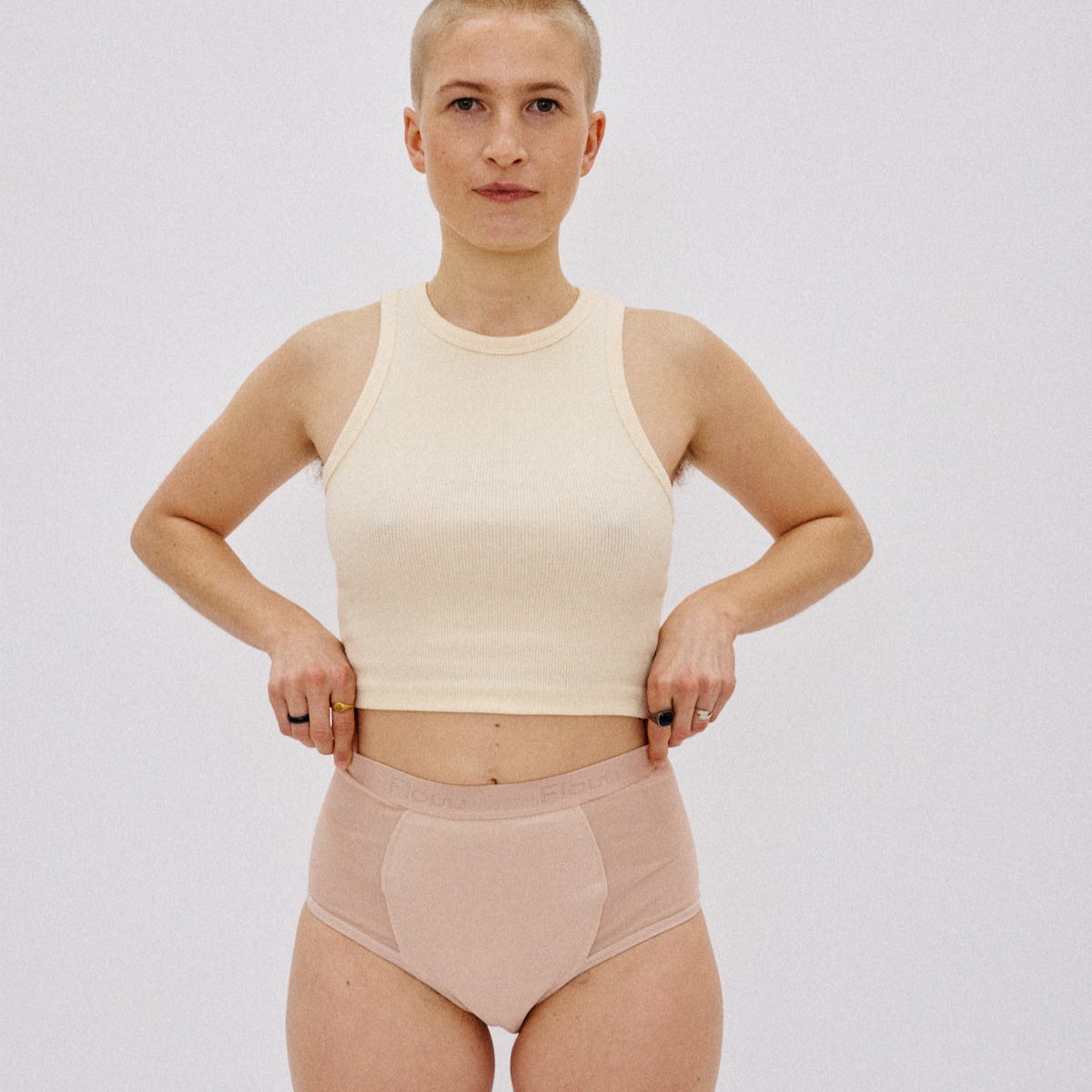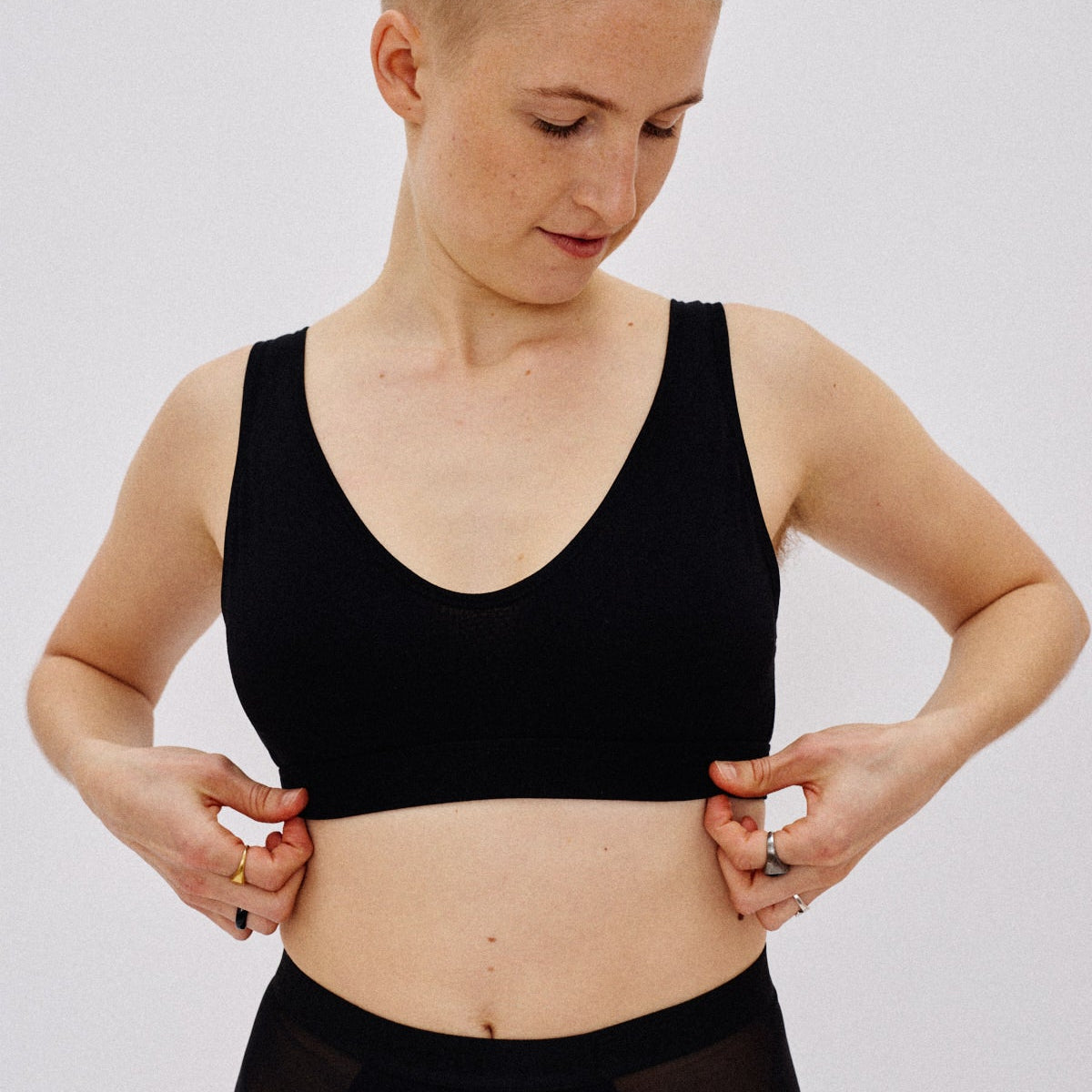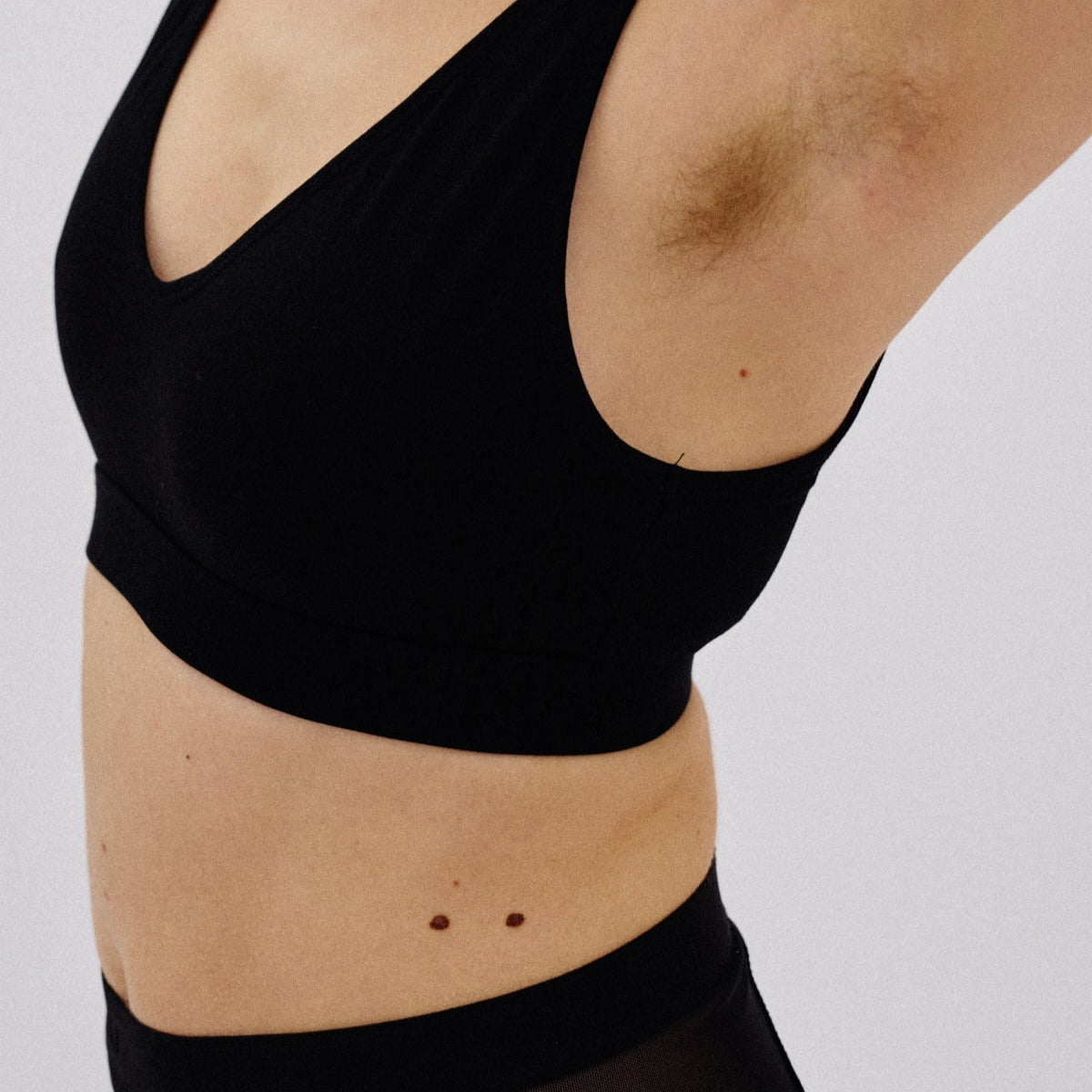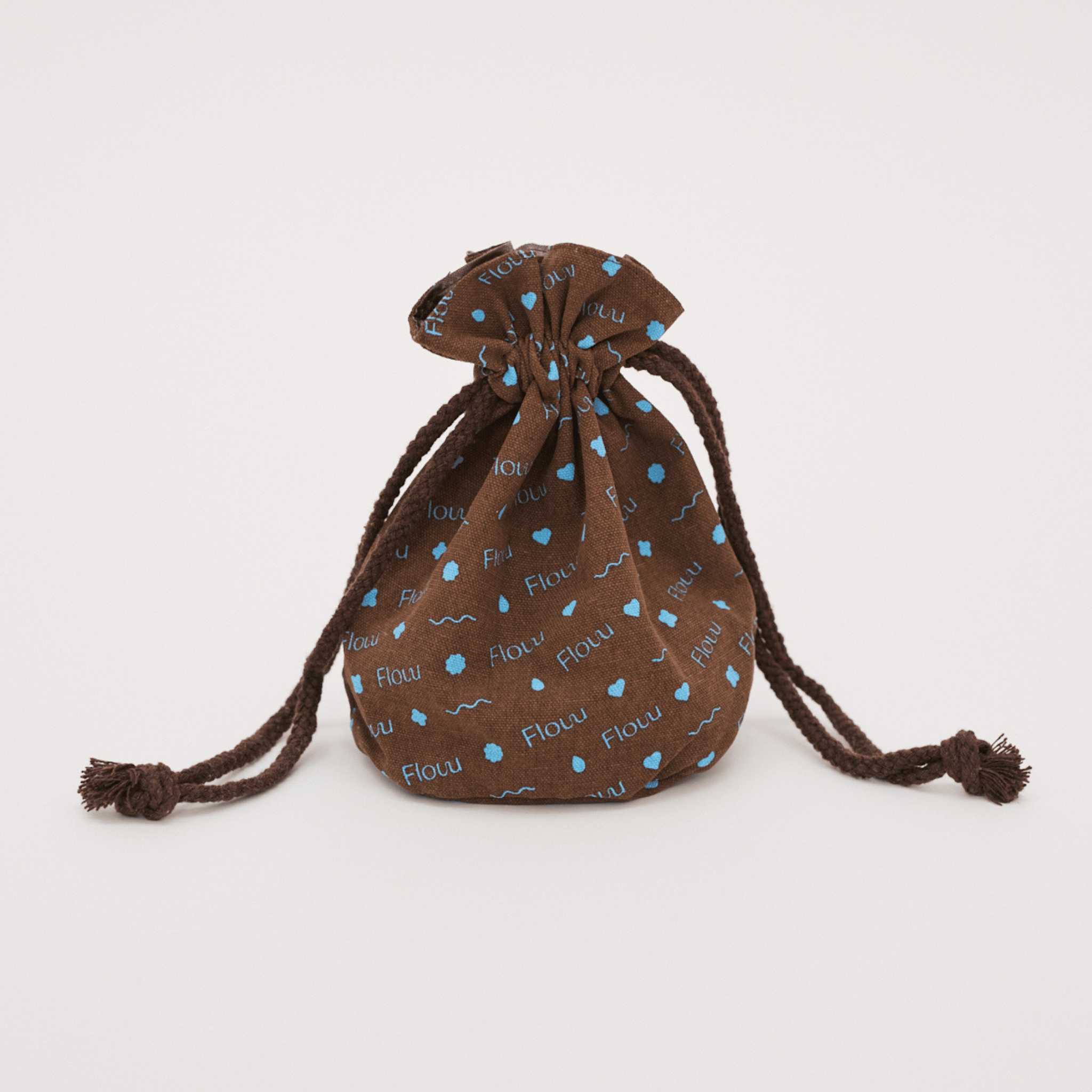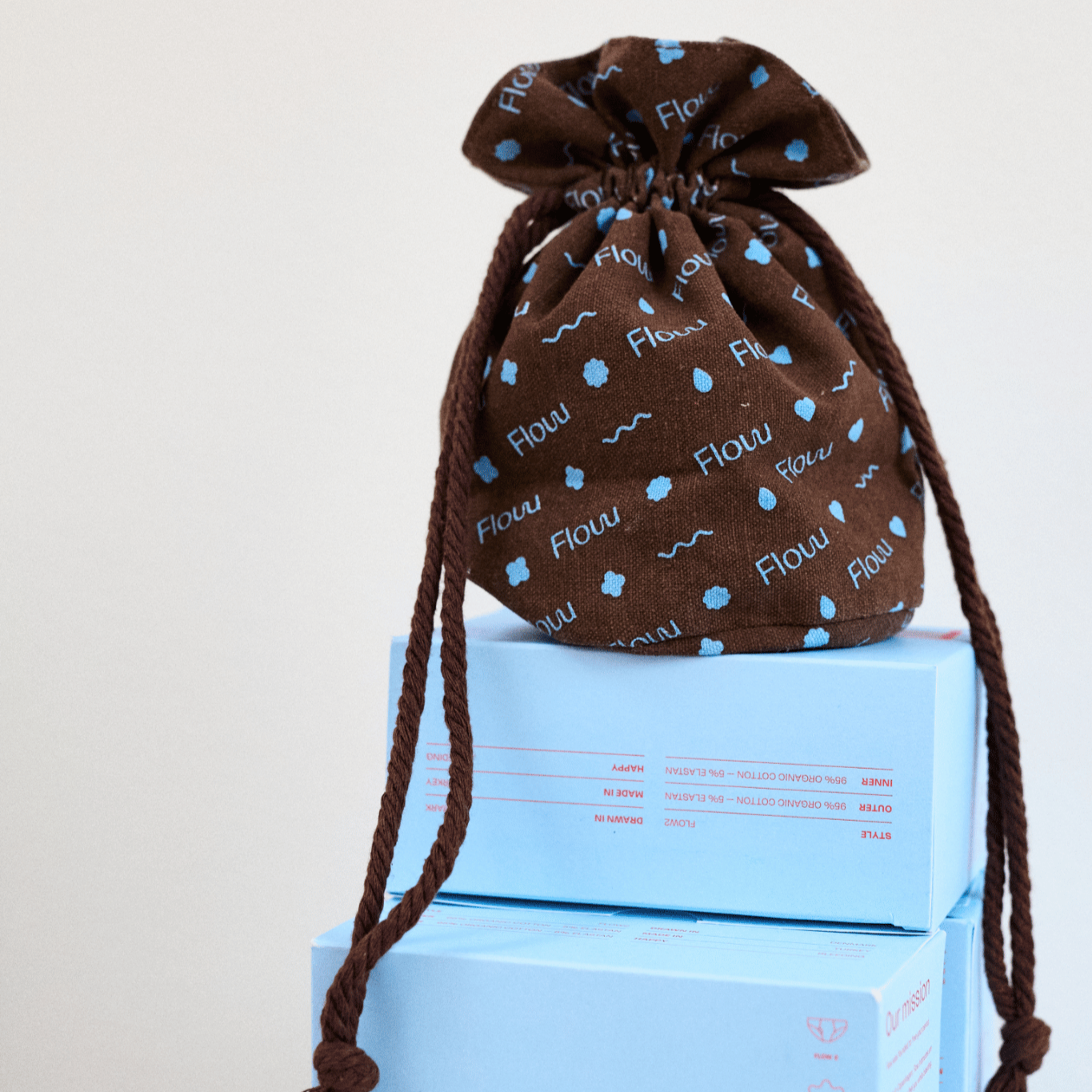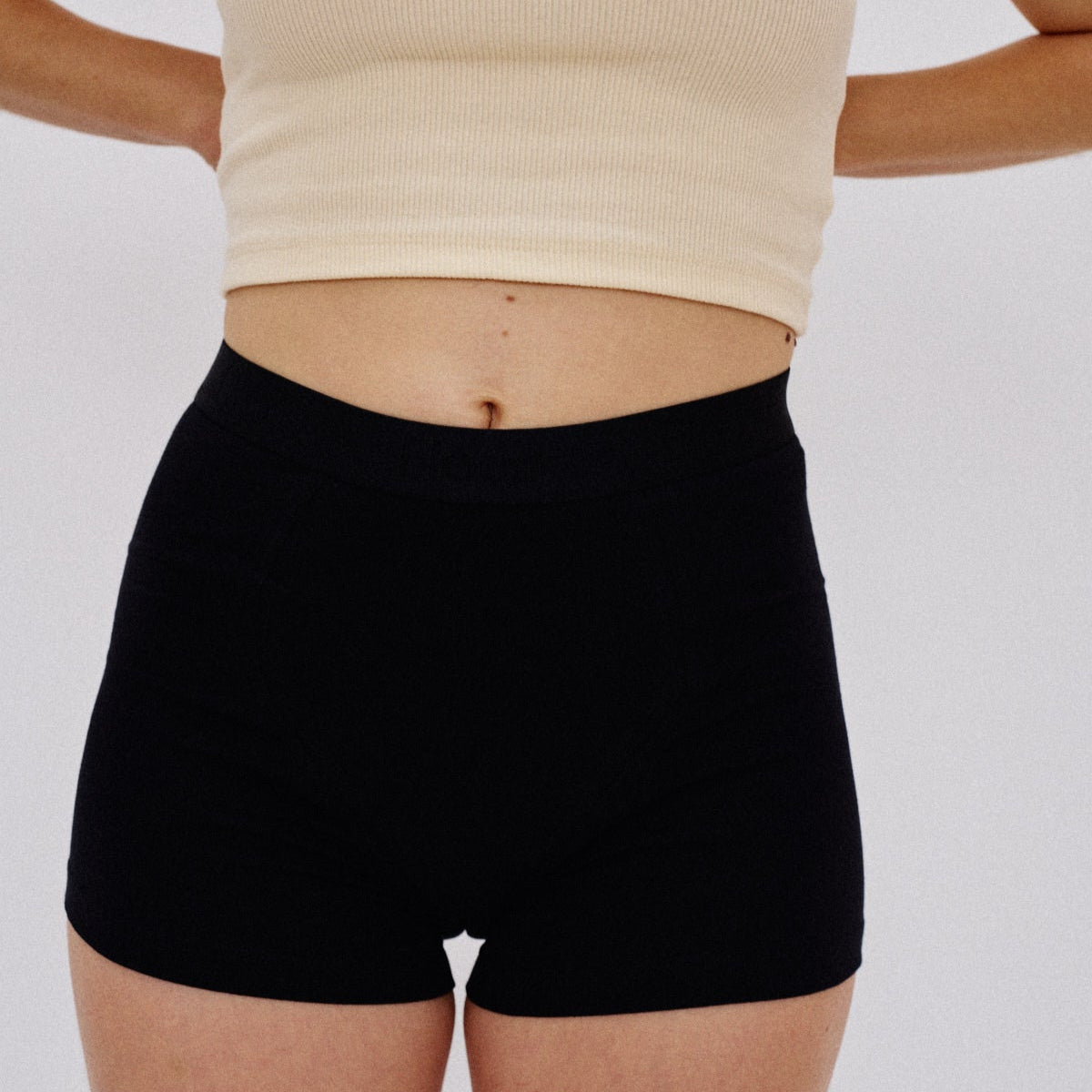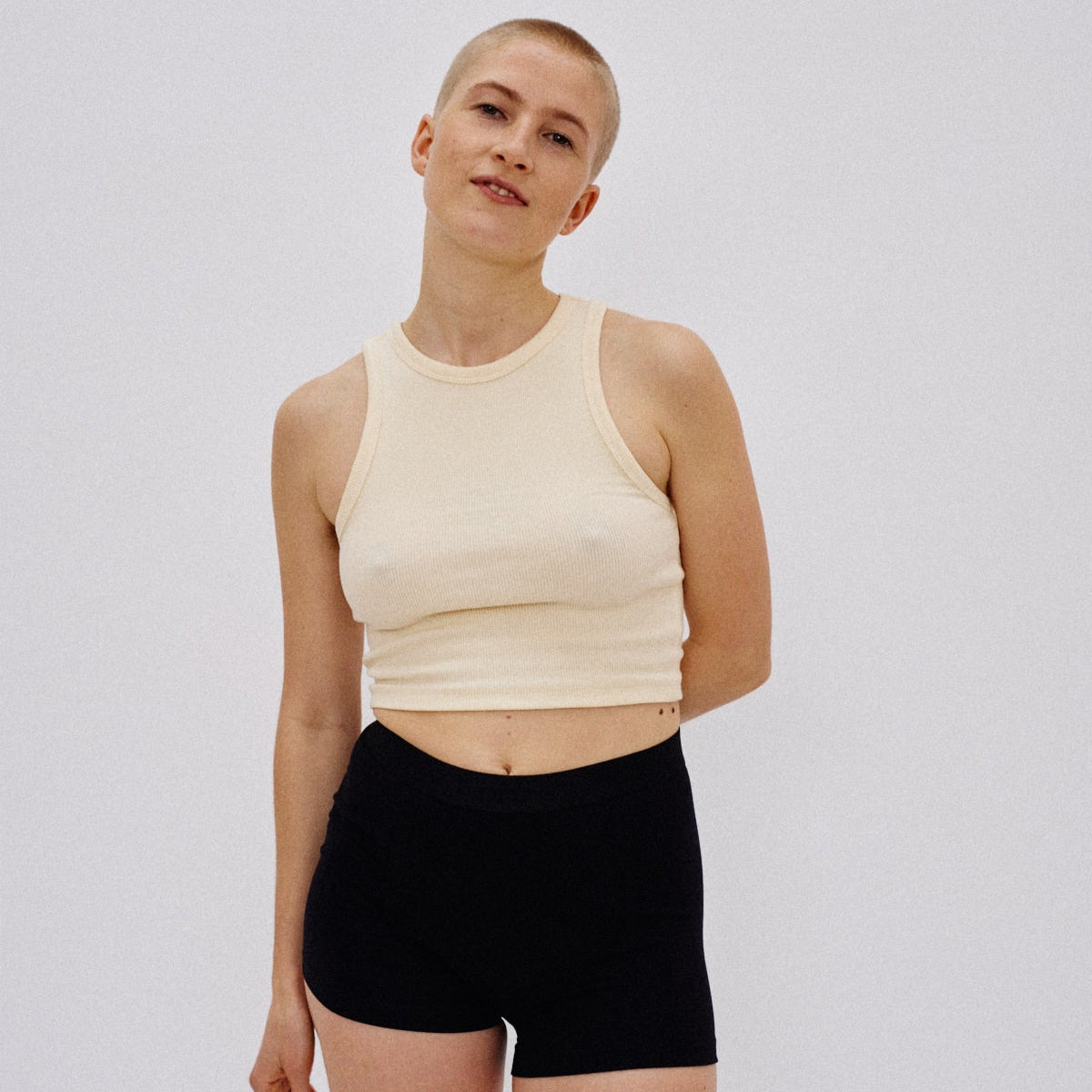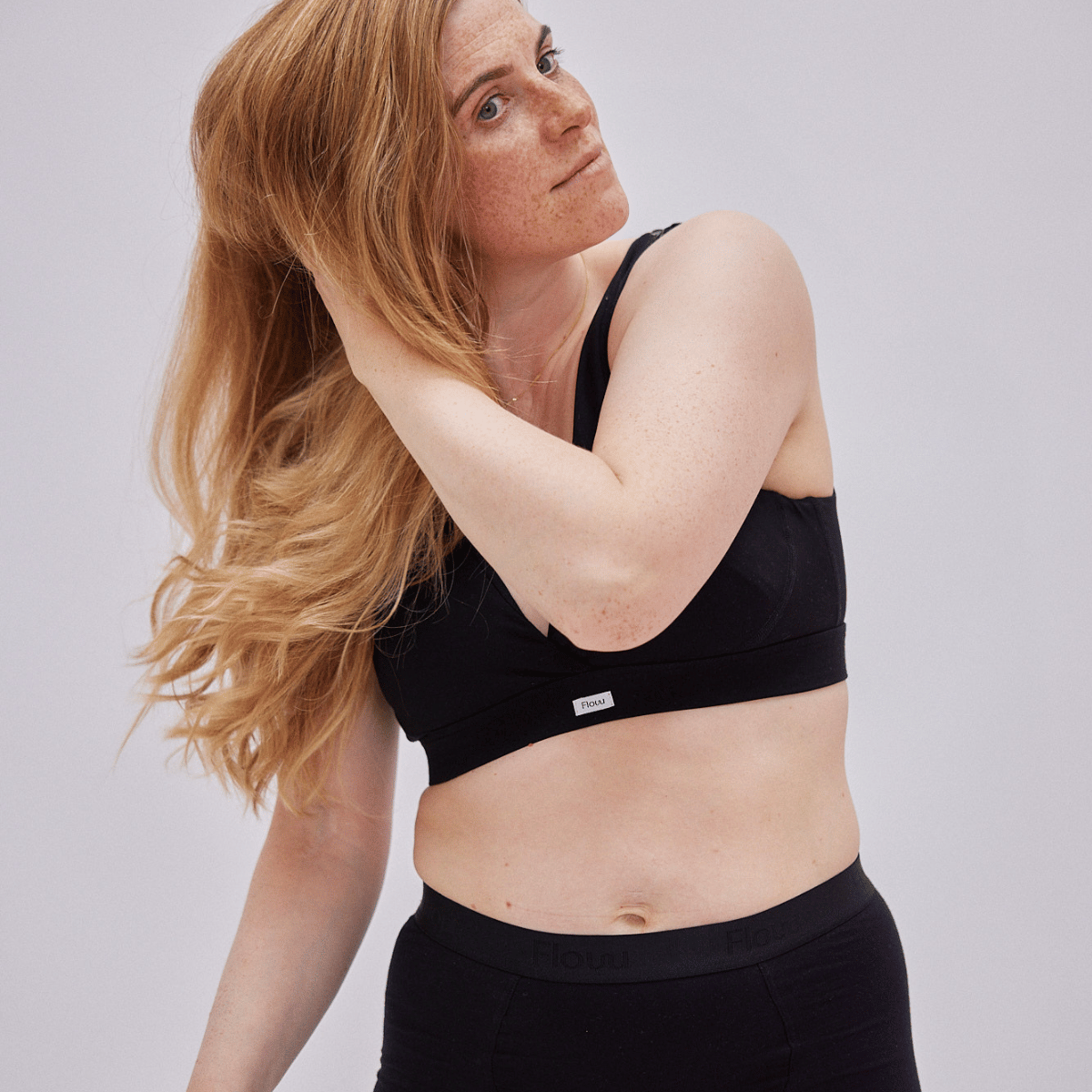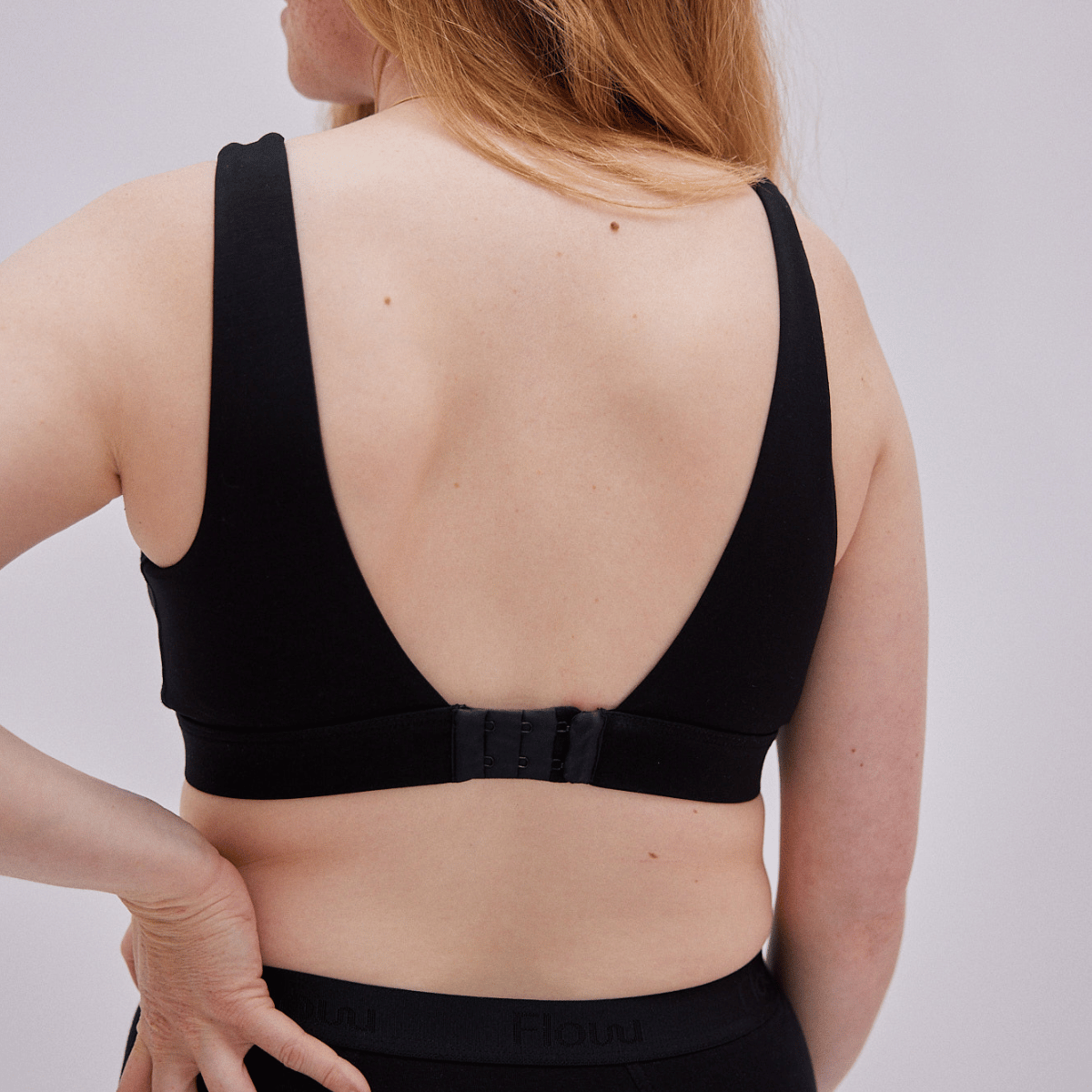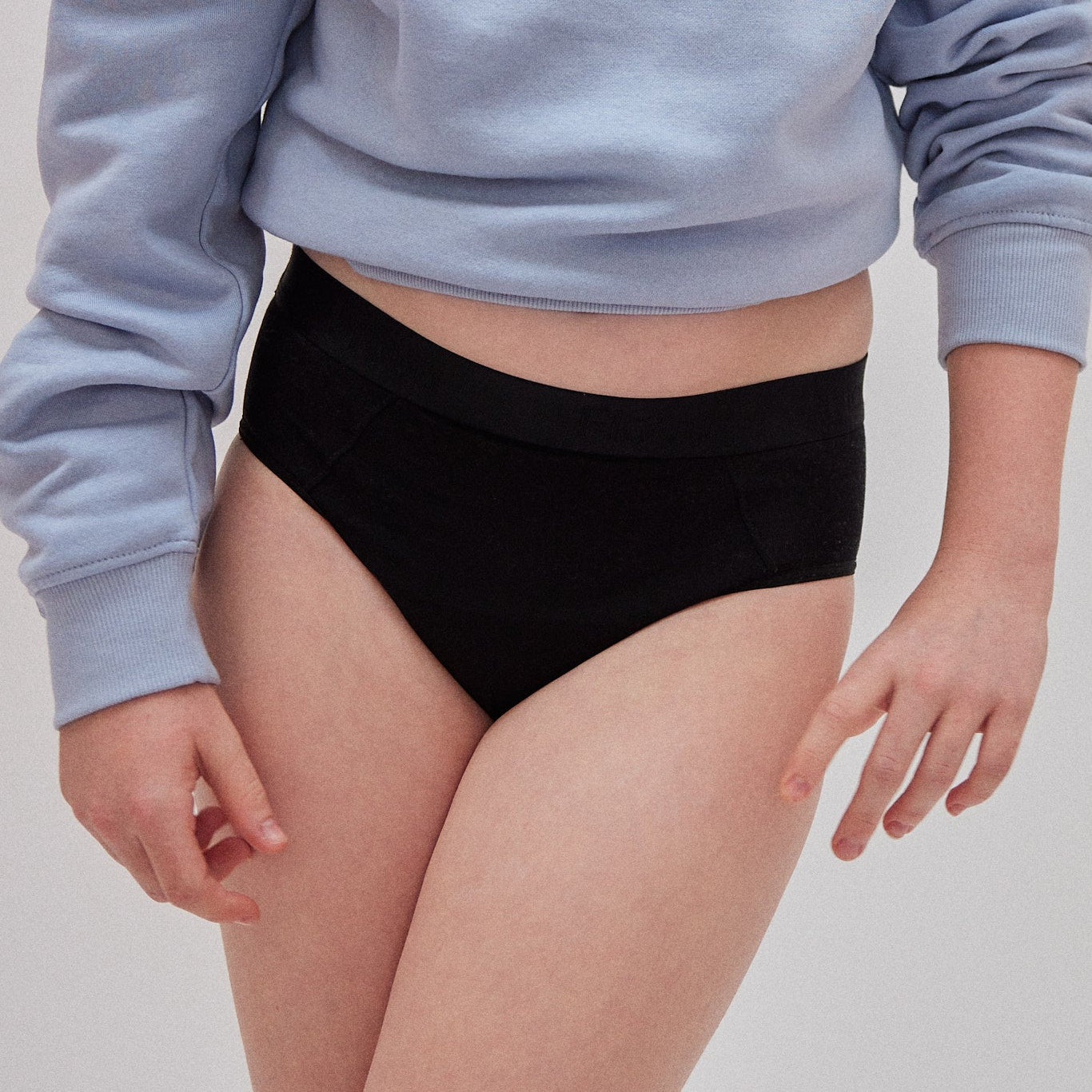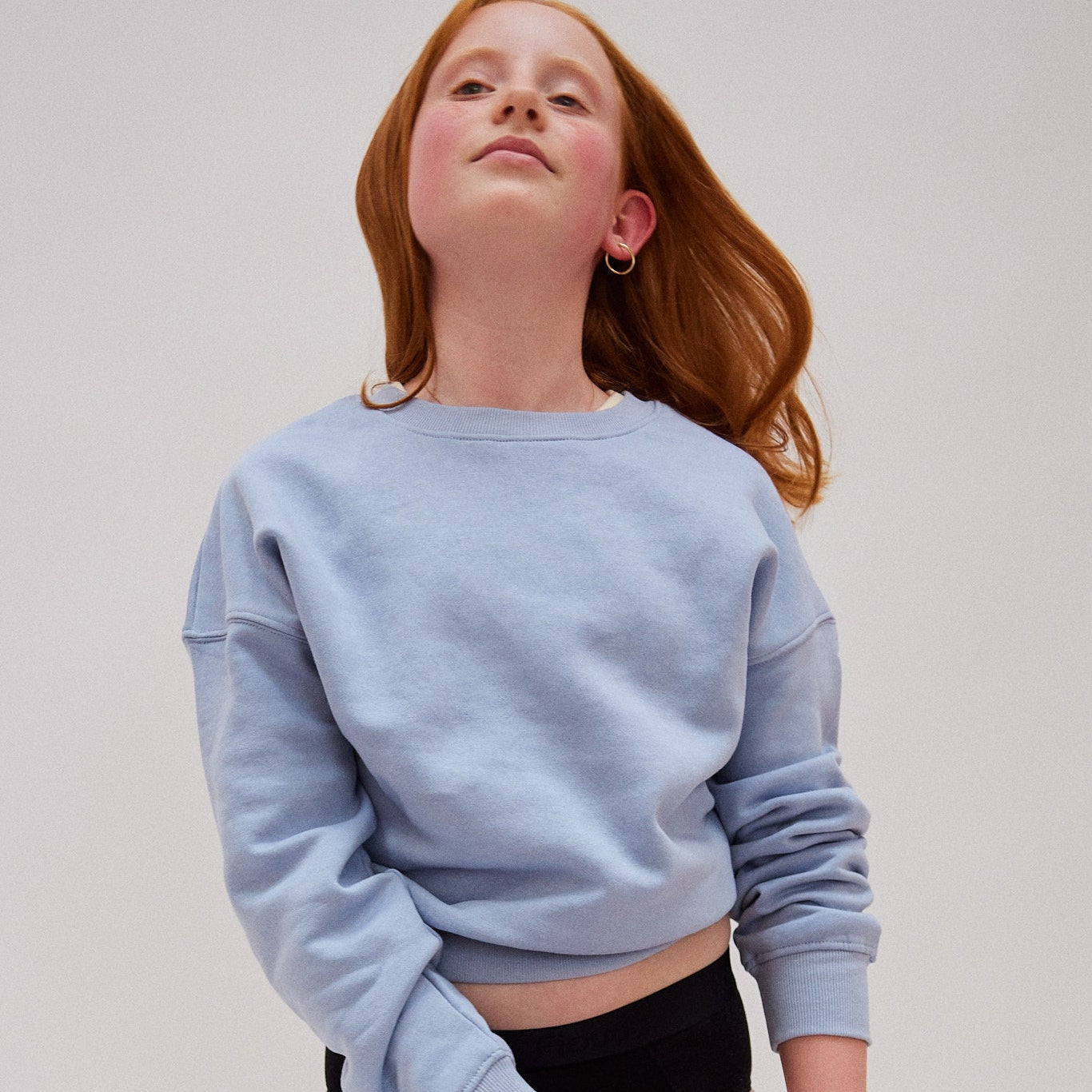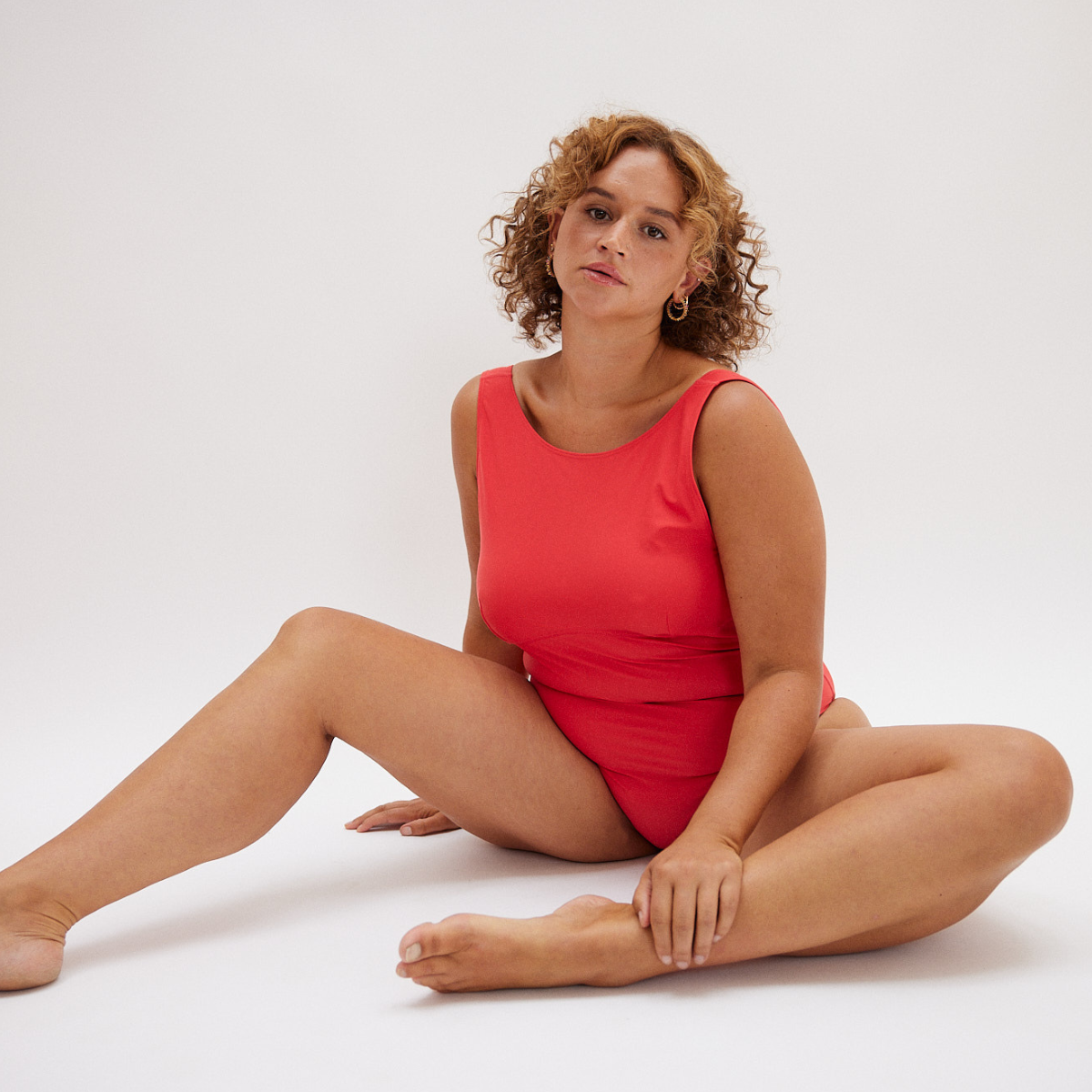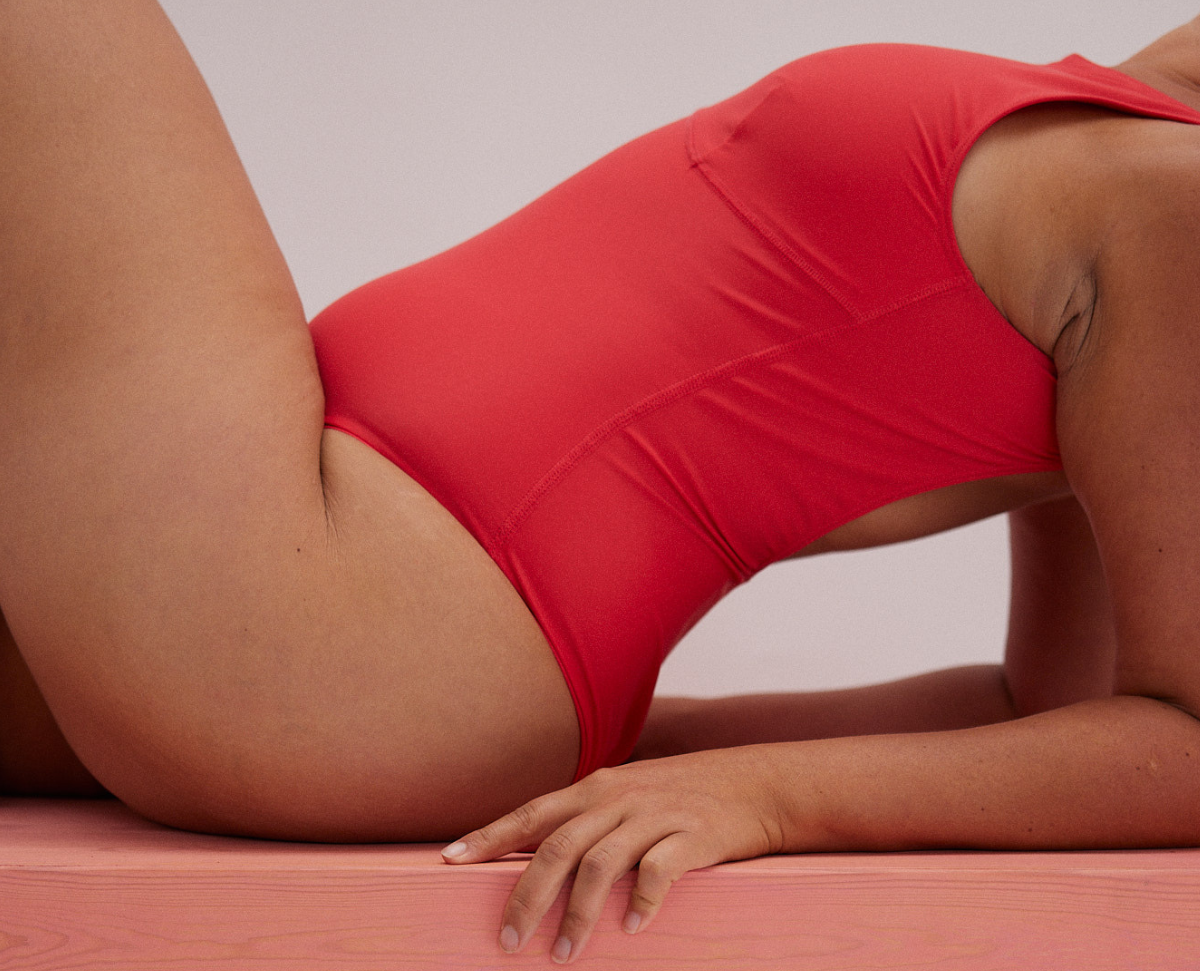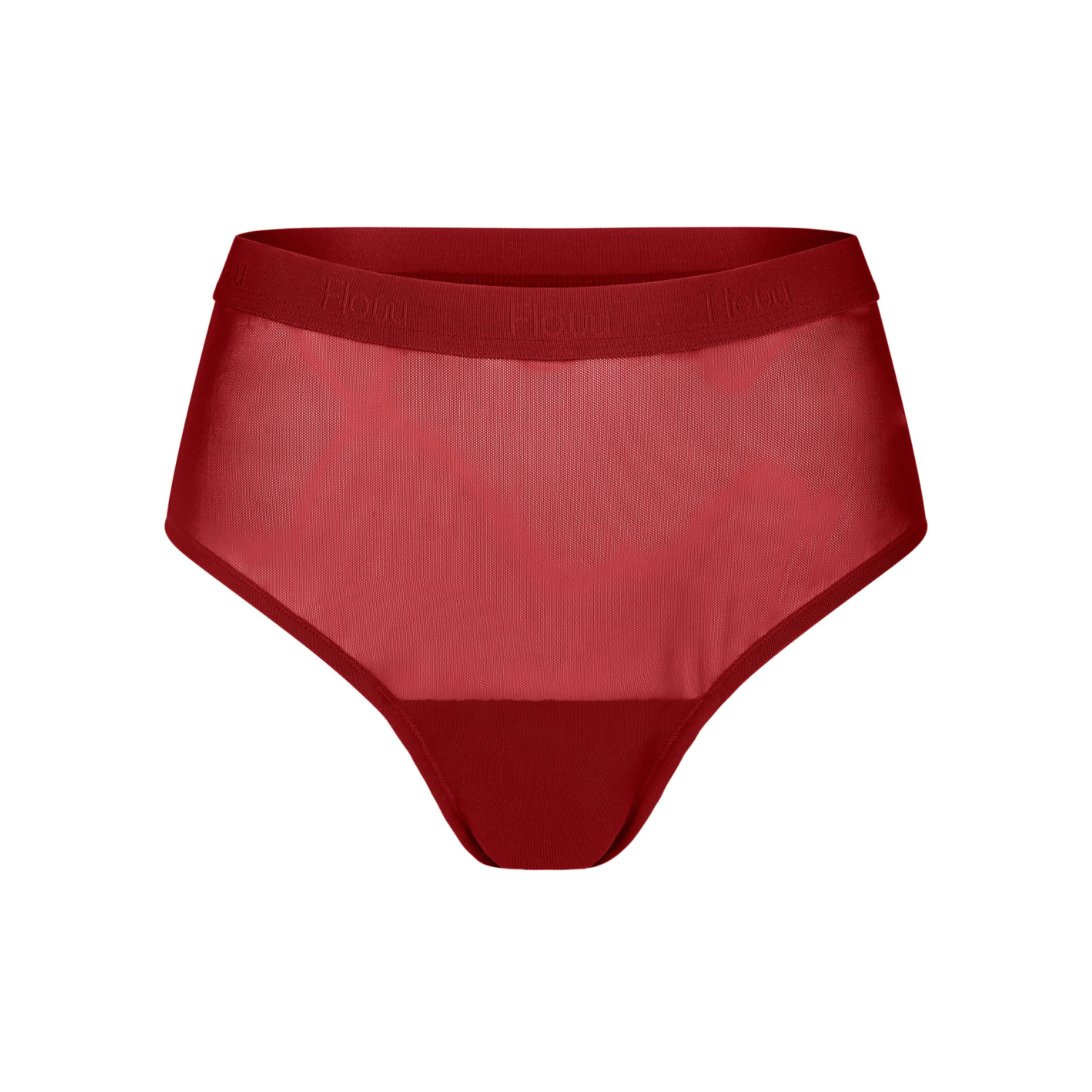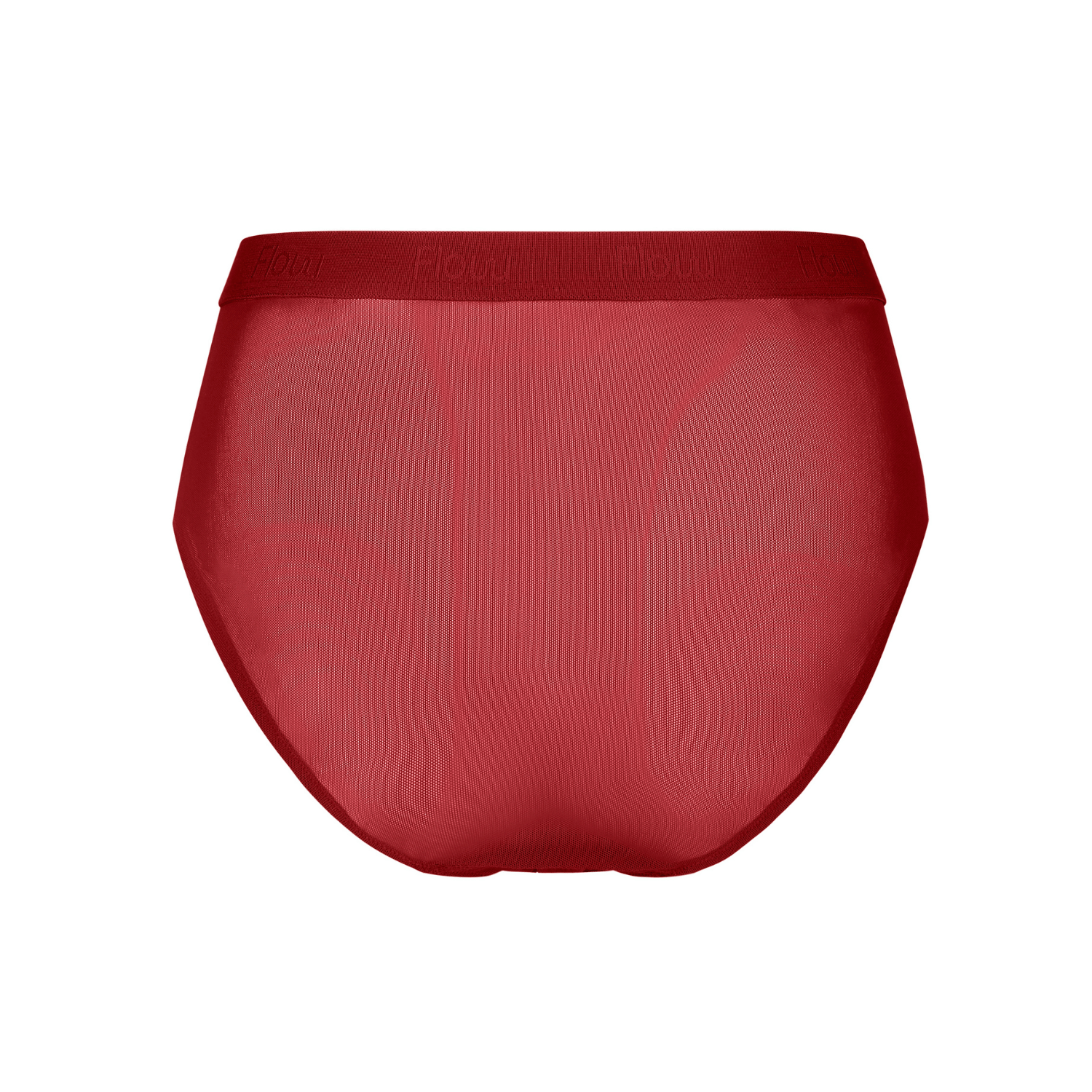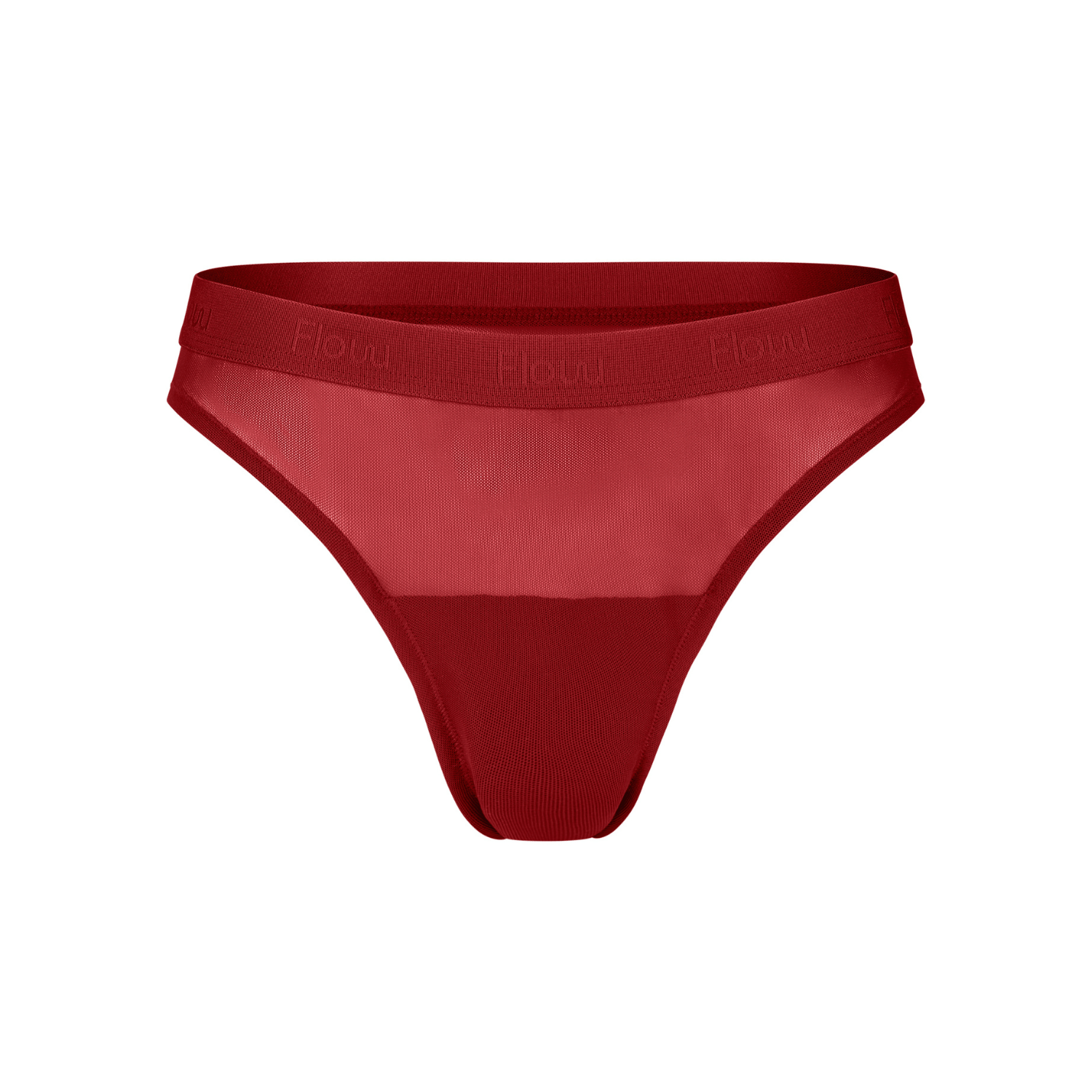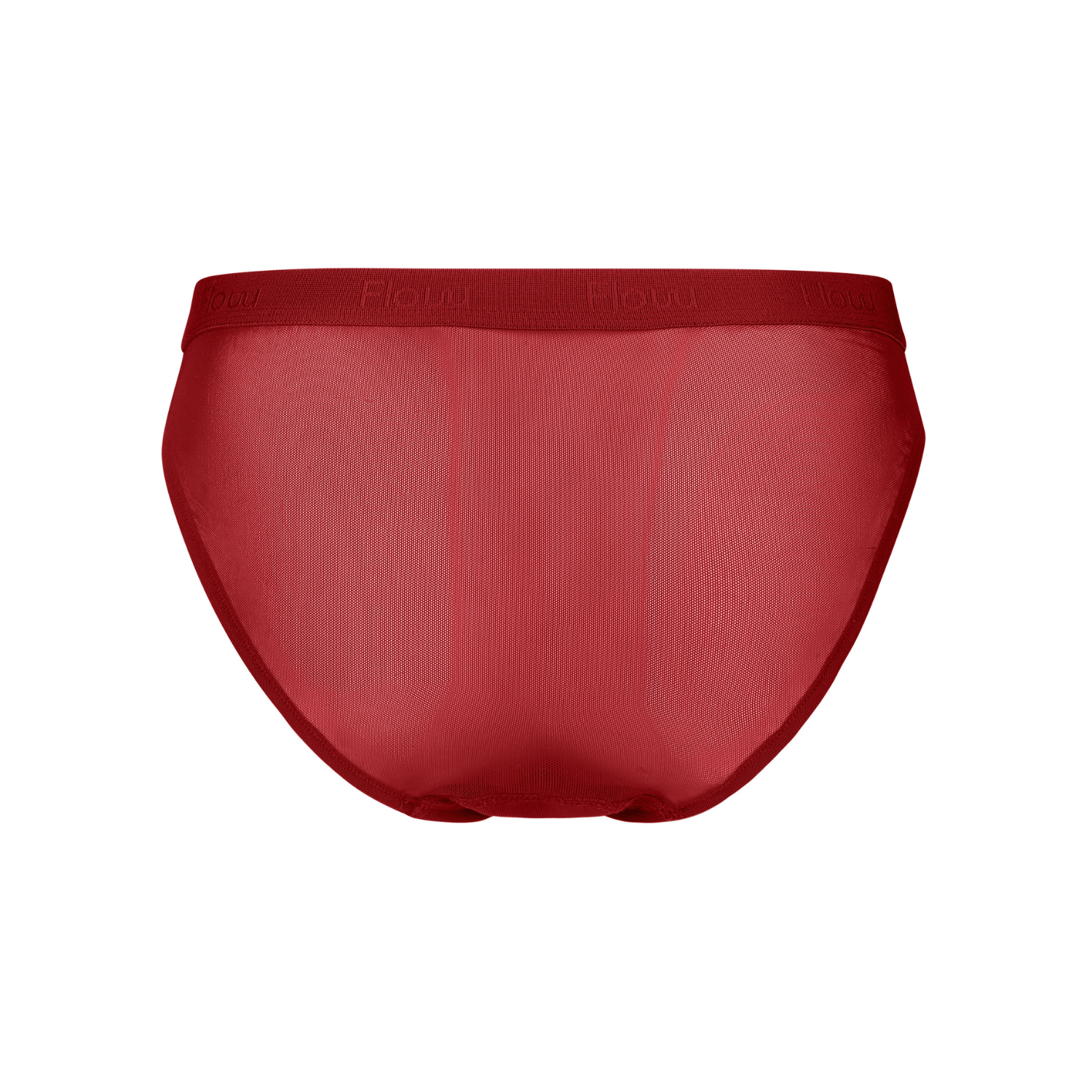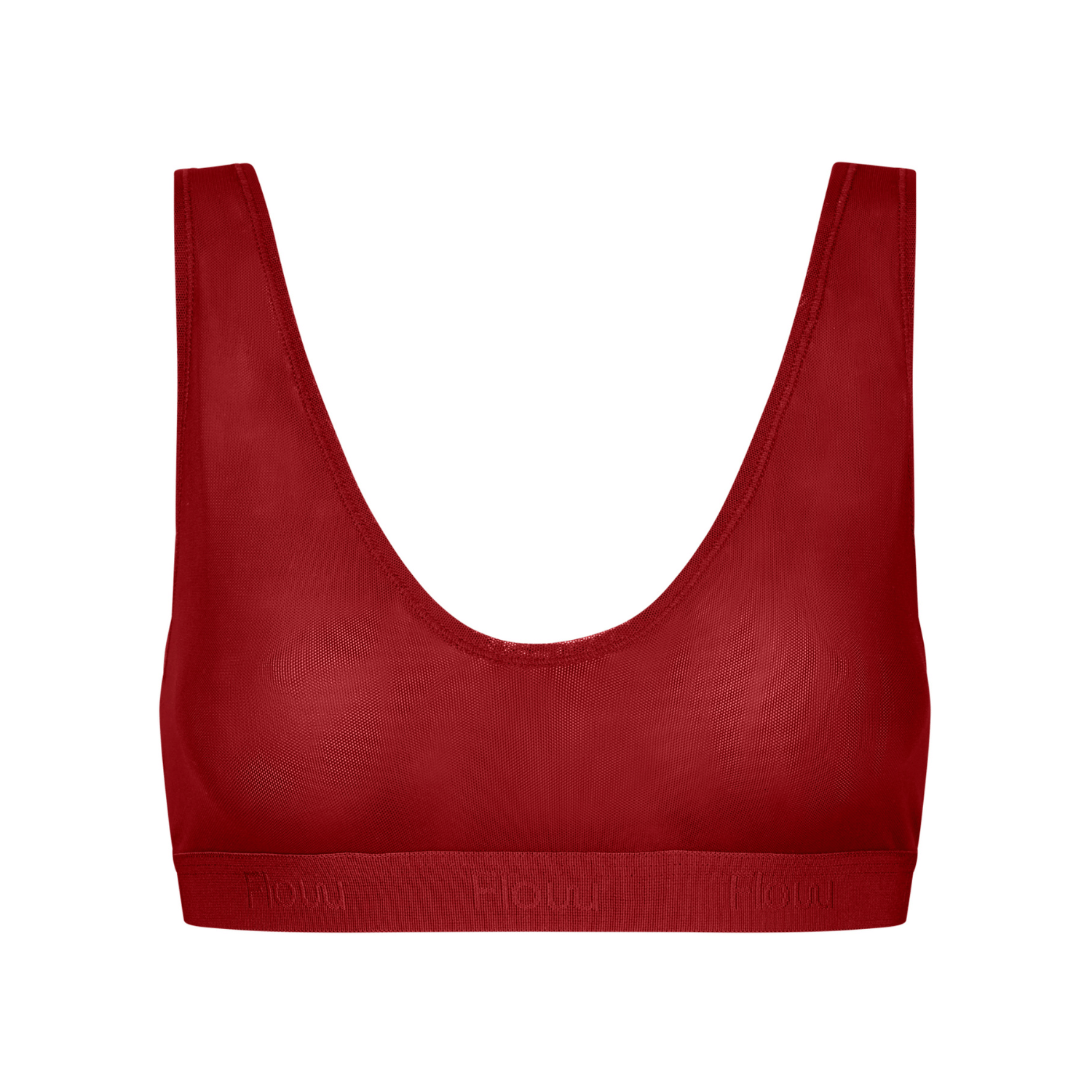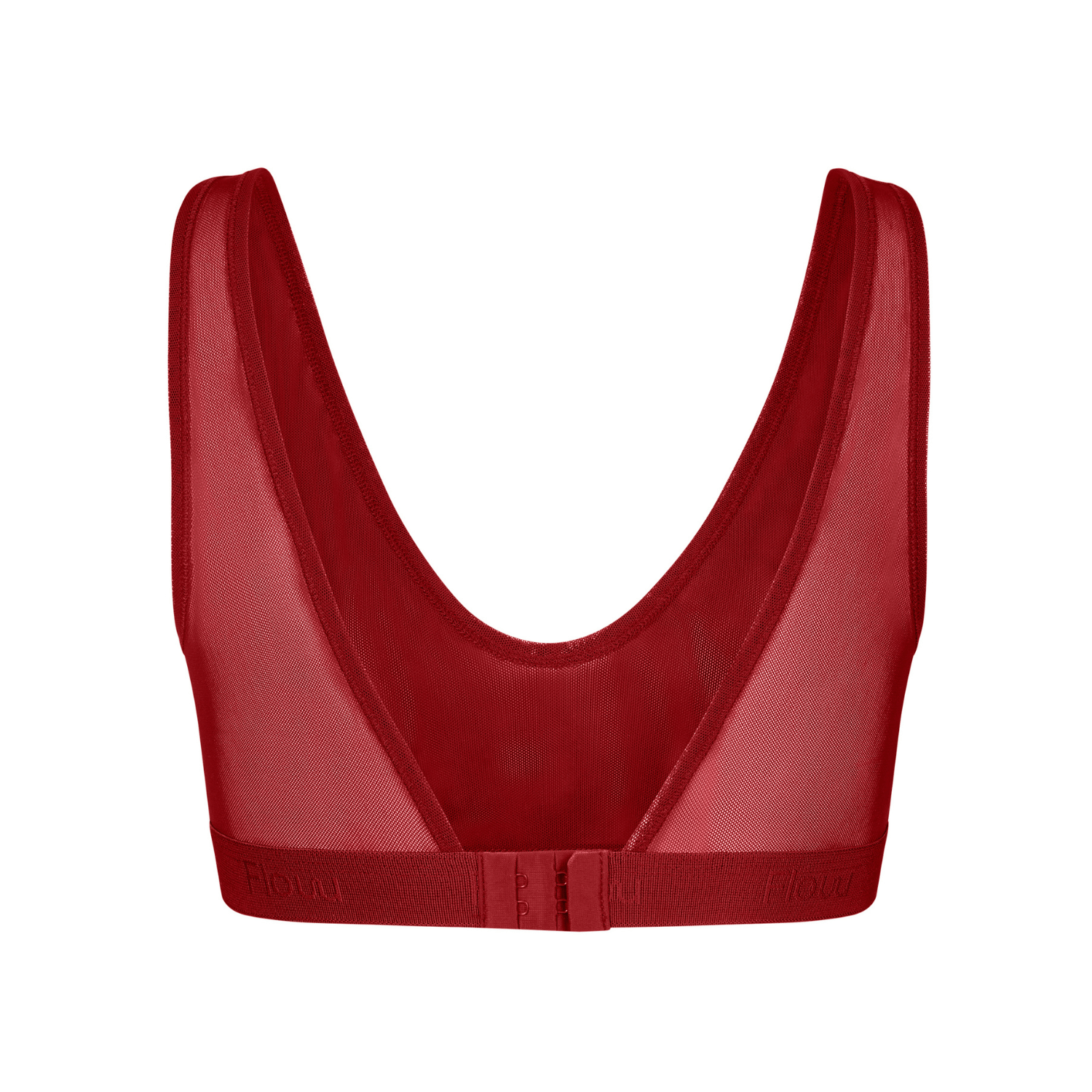Guide: What you need to know about your first period
The first menstruation. Also called menarche (just as the last menstruation is called menopause). For most people, an experience, a day, a moment that you will remember for the rest of your life. A milestone that marks a transition - but which can also contain many and diverse emotions, and which may throw you on a bit of a roller coaster ride of thoughts and big feelings.
Maybe you've been waiting for it - or it might come as a complete surprise to you. Regardless, it's still a new condition that comes with a lot of new experiences and a lot of new knowledge about yourself and your body that you have to learn. That's why we've written this little guide, where we answer various typical questions about the first period, and what happens the first time you get your period.
Read on and learn a lot more - you may have already had your period for many years, but there's still a lot to learn. It seems like it'll be that way for most of us until the last drop.
Signs of the first menstruation
If you look around your group of friends, there's a good chance that each of you has had your first period at very different times in your life. Danish menstruating women get their first period at a wide age range - anything between 9 and 16 years is considered normal . However, it is most common for the first period to come when you are between 11 and 14 years old.
Menstruation occurs when young women and people with a uterus begin to go through puberty. In simple terms, puberty and menstruation involve going from a child's body to an adult's body. But when exactly the first period will come is quite impossible to predict with precision.
However, puberty comes with some clear signs that may indicate that the first menstruation may be on the way.
There may be various signs that the first menstruation is coming:
- It may be that you have started to smell different.
- You've started to get hair under your arms and in your crotch.
- Your breasts have grown.
- You experience stomach pain or bloating
- You experience weight gain
- You've had vaginal discharge, which is this grainy, milky substance in your panties.
- You have pimples on your face.
However, this does not mean that you need to experience these signs to know that your period is coming. There are some who do not notice any signs or symptoms at all and simply feel as they usually do.
What happens in the body during the first menstruation?
You now know that menstruation comes with puberty. But what exactly triggers menstruation?
The answer? Your hormones do. Before we dive into them, let's just briefly review what your period actually is.
Just as a boy or person with a penis has a sperm cell, which is a sex cell, so you have an egg cell. Whereas sperm cells are formed anew in the testicles throughout life, you are born with all your eggs at once, that is about 5 million eggs (it sounds crazy, but they are microscopic). The vast majority of them die, but when you go through puberty and get your period, you will typically mature one egg about every month in your right and left ovaries alternately.
Approximately 10-14 days into your cycle, the egg will be released and travel through the fallopian tube down towards the uterine cavity, and on that journey it can be fertilized (meaning: you can get pregnant).
A thick mucous membrane will have formed in the uterine cavity, and it is there so that a fertilized egg can attach and grow into a fetus.
But if the egg is not fertilized, then both the egg, uterine lining and blood will leave the uterine cavity, move through the cervix, through the vagina and come out as menstruation. It's the same thing the body goes through every month, a new egg matures, travels through the fallopian tube, a new uterine lining is ready to receive a fertilized egg - and if you are not pregnant, it comes out as menstruation. That's the basics and the more mechanical part of your menstrual cycle.
And then back to the hormones, which have a HUGE role in how it all unfolds.
Hormones are various signaling substances that are produced in glands in the body, and they are transported around your body in the blood and instruct your cells to carry out certain tasks. And this could be, for example, starting your very first period.
So your first period can start when the hormones tell your body to ovulate (so you can get pregnant). If you don't get pregnant - your period will come about 14 days after you ovulate.
But! The body can actually just practice having a period - without ovulation. The hormone estrogen, which is one of the female sex hormones, will ensure that a uterine lining forms and matures - so that your body can reject it like a period. But without you having ovulated. Quite mischievous actually.
What does menstruation consist of?
You know that menstruation consists of blood - hence its beautiful deep red color. The blood comes from small superficial bleedings in the uterus from the place where the uterine lining was stuck. But in fact, your menstruation also consists of the uterine lining that your body has expelled, which is why your menstruation has a different, perhaps slightly thicker consistency than, for example, the blood from a wound on your knee, and also the egg that was not fertilized (don't be afraid if you suddenly spot an egg on the toilet paper - your egg cells are TINY. Tiny tiny and cannot be seen with the naked eye).
What does the first menstrual period look like?
You're probably thinking a lot about how it feels and maybe also about what it will look like - and where you'll be when it first comes. But one thing is for sure: It can be seen. Not by others (unless you're bleeding through it) but by you.
The first period will involve bleeding. Many people discover that they have had their period when they pee - perhaps it drips a little into the bowl or they see a few drops of blood on the toilet paper.
For some it comes as a big surprise, and it's natural that it can be overwhelming to deal with suddenly bleeding between your legs. It's like your body has gained a new feature! But don't be afraid that it will suddenly come pouring out. Most people will experience a very small amount of blood the first time - and for some it's just discharge that is mixed with a little blood and thus gets a browner color than normal.
The other thing about a new period is that it's rarely regular at first. A typical menstrual cycle lasts 28 days (but already now: Learn to note a small 'M' for period in your calendar or use an app like Clue to note the first day of your bleeding - you should always do this until it stops at menopause, as your cycle length is nice to know so you can prepare - but also because it actually tells you a lot about how your body is feeling).
In the beginning, many weeks, and for some even months, can pass between periods. This is completely normal for the first year or two from your first bleeding, the menarche. There is also a completely unique way in which you experience menstrual symptoms. Some are very bothered by symptoms such as stomach aches and mood swings - others are almost not. And it is important to say that although menstrual cramps are quite common and widespread, it is not normal - if you are in a lot of pain, you should talk to an adult so that you can talk to the doctor together, as it may be a sign of irregularities such as hormonal disorders such as endometriosis or PCOS.
Your period is actually a great reminder every month to listen to your body - how are you feeling? How is it feeling? It's a message from your hormones to take some quiet days at a slow pace, because that's what your body needs when it's working and shedding the lining of your uterus. It's an important life lesson to take good care of yourself when you get your first period - and the next many.
It's especially a good idea to talk to someone around you and tell them that you've started your period. It's not embarrassing! And it's not shameful! Half of the world's population will menstruate, are menstruating right now, or have menstruated. In fact, there wouldn't be any people on earth if it weren't for our periods.
So say it out loud, without any shame. It could be to a good friend, your parents or someone you are close to . It can be nice to talk to someone who knows what it feels like to have your period and it can also be nice to have someone to help you buy menstrual products, because there are so many types.
Sanitary napkins for first period
When you start bleeding, you can use menstrual products that collect the blood. It can be quite nice - but it's also a whole new world. There are many different menstrual products to choose from and you will most likely have to try a few of each, including:
- Menstrual panties
- Volume
- Menstrual cups/menstrual pads
- Tampons
Because your cycle is typically not regular at first, it can be a good idea to have a menstrual product with you in your bag so that you are prepared if your period suddenly comes. A small 'kit' so that you are ready - or that you can help another new menstruator with if they urgently need a pad or similar. Menstruating types - unite <3
You also need to test on your own body which menstrual products you like. Many people use a mix of products - tampons some days, pads some other days, and menstrual panties some third days. It's entirely up to you what you like. There are advantages and disadvantages to all products.
Menstrual panties have the advantage that they just feel like wearing normal panties, but you can bleed in them because they have a built-in pad that absorbs the blood. It can feel nice to use a product that works exactly like you know a pair of normal panties. Then the first period may not seem so overwhelming, since you just have to put on a different pair of panties than you are used to.
It's an exciting time you're facing. Years actually. Most people menstruate for about 30-40 years (!). They will change, your periods, throughout your life - they will come and go (disappear completely when you're pregnant and maybe if you're breastfeeding). You will find that some cycles are short, others longer. You may bleed heavily some days and only a little on others. Sometimes you will curse it, hope it doesn't come or cross it off because it will come. But one thing is for sure: Your menstrual cycle is completely your own. And it really pays to get to know it, to understand how your hormones affect your body and your mood and energy. It's almost the best gift you can give yourself.
Learn more about menstruation at Flow Journal
We hope you've become better prepared for your first period. Of course, you'll be able to handle it, we know that - now you're part of the crew! There are many of us before you who have had our period, and there will be many more after you. Suddenly you're the experienced one who can help the next in line.
If you haven't had enough of reading about menstruation, you can learn a lot more about the subject. At Flow Journal, we have written a lot of articles about menstruation, cycles, mood swings and all the things that menstruation affects.
And remember to talk to someone you are comfortable with. Everyone comes into contact with menstruation in one way or another sooner or later (both men and women), and remember that whatever you think, you are definitely not the first to do it. Read on here .
